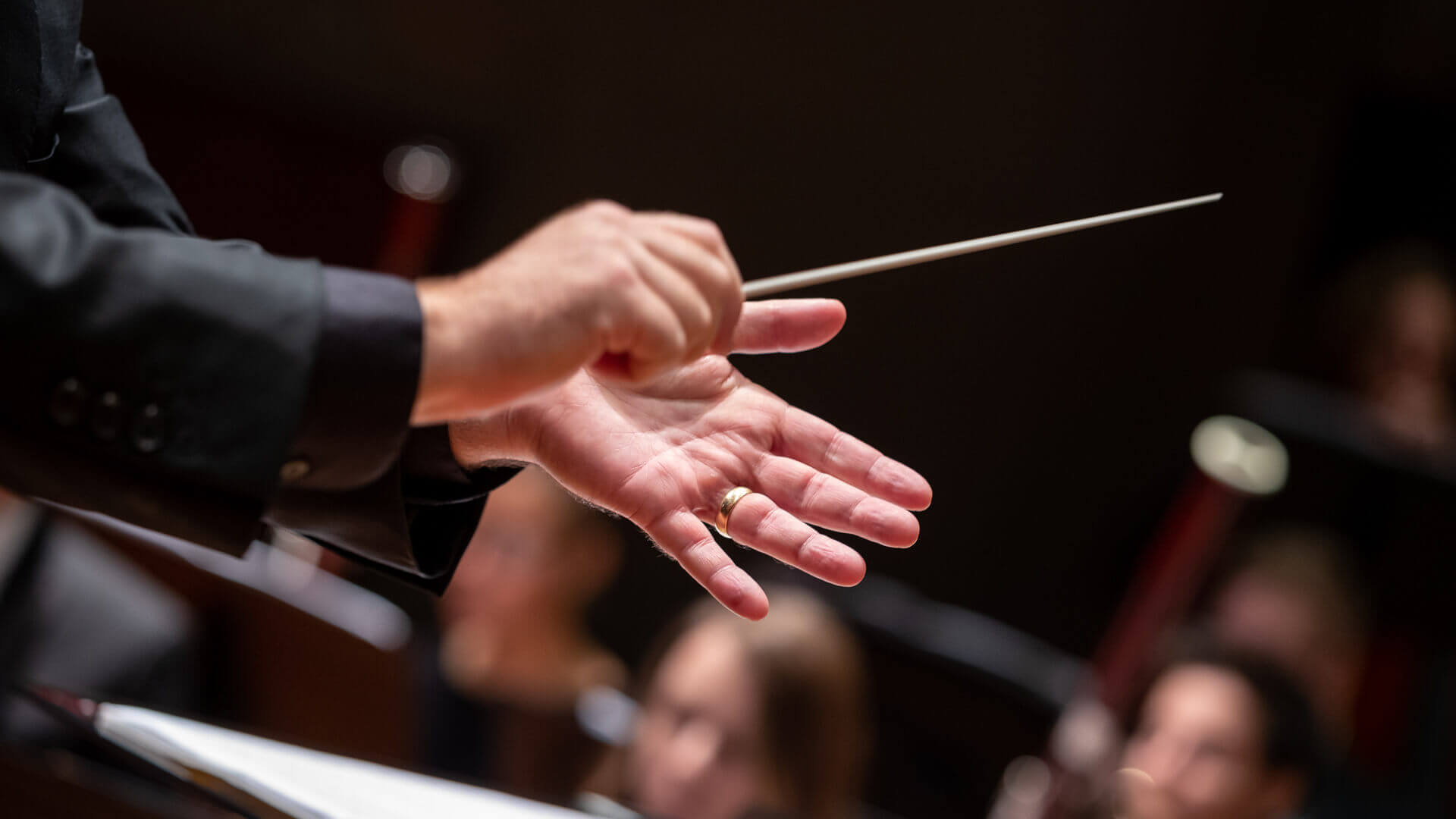
Instrumental Conducting Symposium
June 28 – July 1, 2026
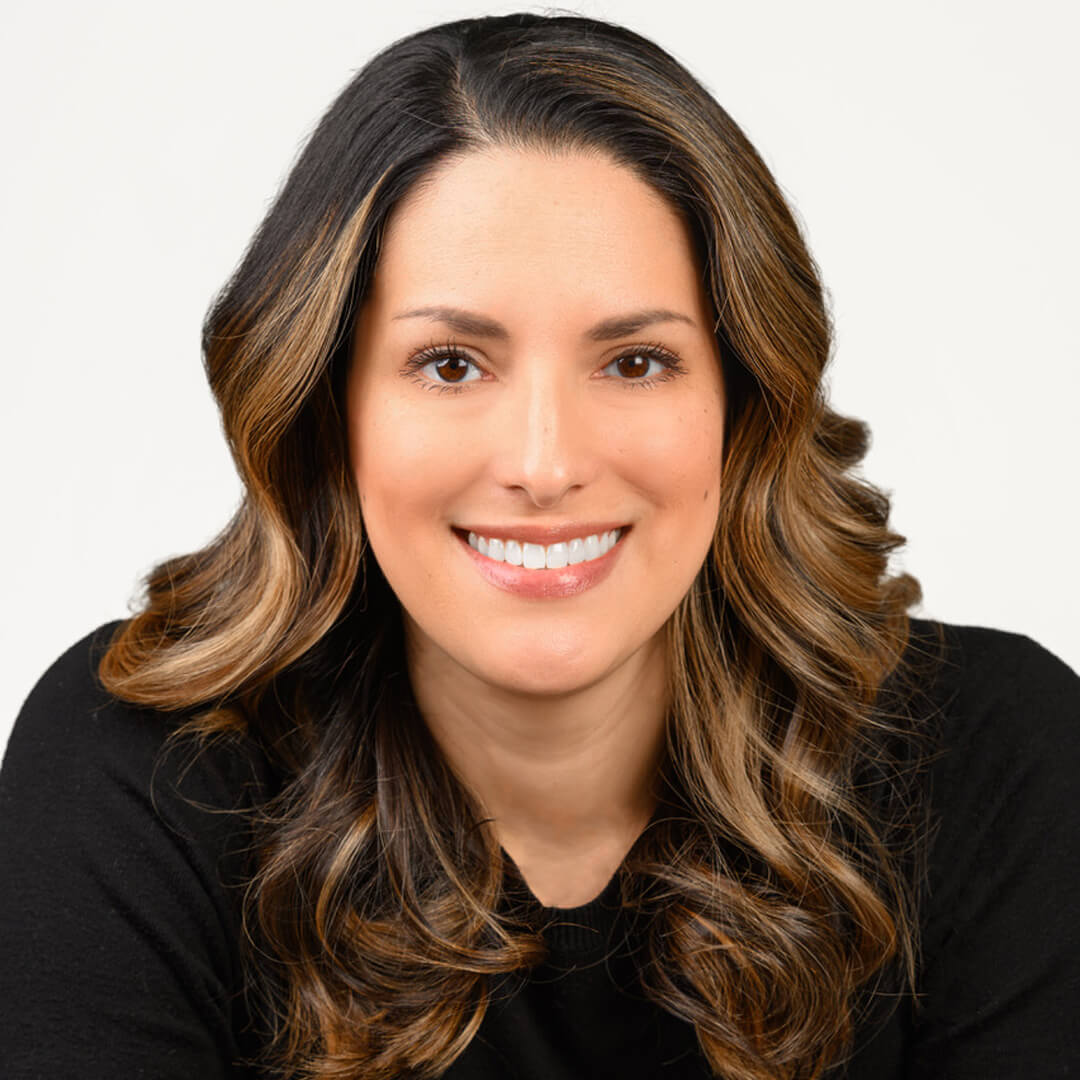
Featured Guest Clinician
Dr. Patricia Cornett
Associate Professor of Instrumental Conducting
Director of Bands
Boyer College of Music and Dance, Temple University
Patricia Cornett is associate professor and director of bands at Temple University where she conducts the Wind Symphony, teaches undergraduate and graduate conducting, as well as courses in wind literature. Prior to joining the faculty at Temple, she was the director of bands at Cal State Fullerton where she conducted the Wind Symphony and Symphonic Winds, and taught courses in conducting and music education. She earned her Doctor of Musical Arts degree from the University of Michigan, Master of Music degree from Northwestern University, and Bachelor of Music dual degree in music education and saxophone performance from the University of Massachusetts, Amherst.

Symposium Director
Dr. Tim Robblee
Director of Bands
Associate Professor of Conducting
Shenandoah Conservatory
Shenandoah University
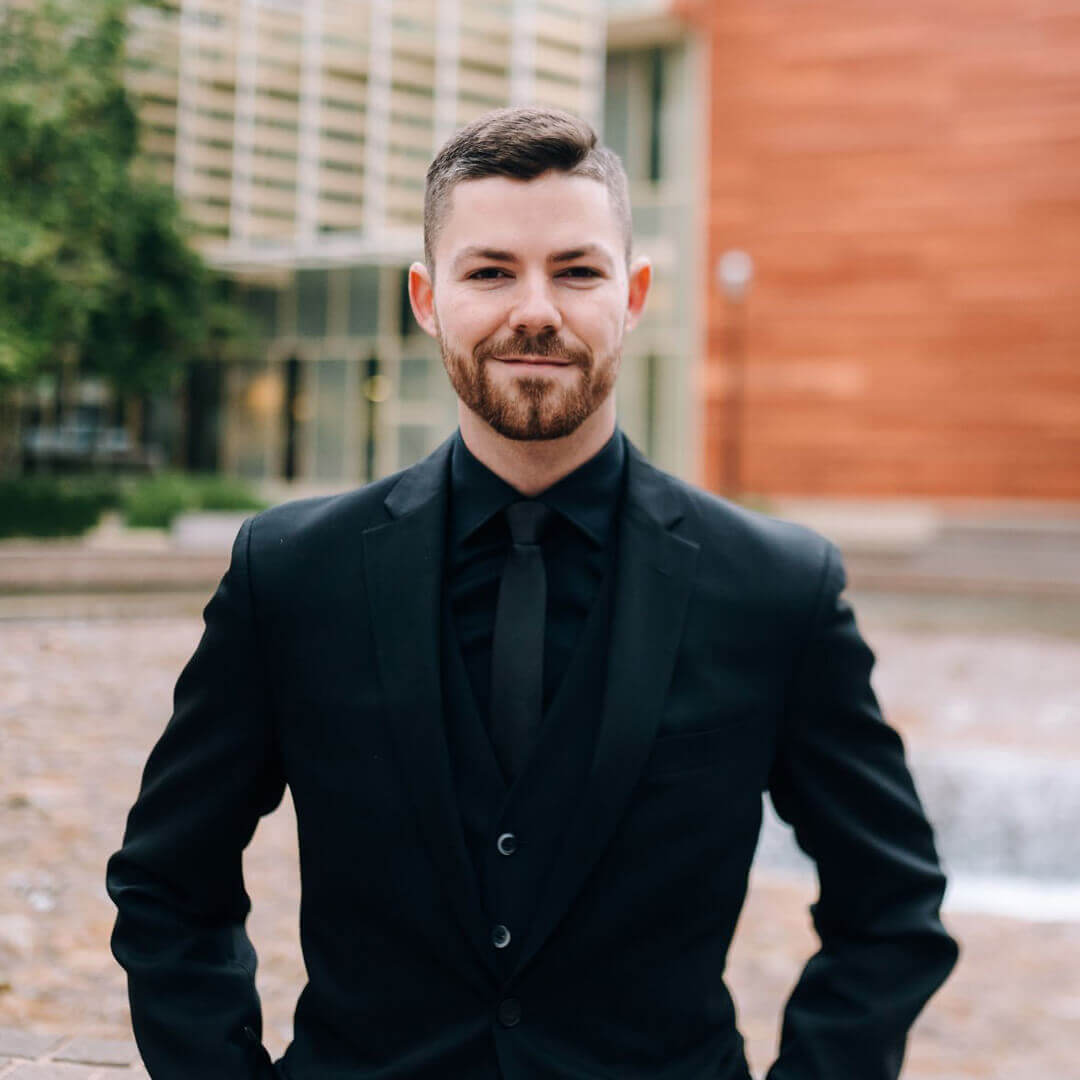
Supporting Clinician
Dr. Shaun Evans
Director of Athletic Bands
Adjunct Instructor, Conducting
Shenandoah Conservatory
Shenandoah University

About
All participants conduct both chamber and full ensemble repertoire. Daily conducting sessions consist of hands-on feedback from clinicians as well as video review feedback. The week is designed to further develop your conducting skills as well as add new thoughts and techniques to your everyday work.
We believe in a strong sense of camaraderie and care for your fellow musicians. There will be many opportunities to meet new people for different areas and share ideas with each other over the course of the week. Social activities are an integral part of your time here as well!
Participants and observers will take part in clinics on a wide range of topics, including discussions on score study, rehearsal techniques (including observations), wind literature, working with composers, effective teaching methods from the podium and many others!
Application Information
The Instrumental Conducting Symposium is open to up to 24 participants. An unlimited number of observer slots are available for the 2026 summer program.
Once the participant slots are filled, you can be added to the waitlist for a Participant slot by indicating this on the registration form. Conductors will be pulled from the waitlist on a first-come, first-served basis.
Applicants will receive confirmation of acceptance into either the participant track or by Monday, March 23, 2026. Directions for payment are included in an acceptance email from Dr. Tim Robblee. Please note that slots will not be reserved until payment is received.
- Full access to all symposium events
- Playing in the symposium band, including the demonstration rehearsal
- Opportunities to conduct in the morning small group sessions (provided that the number of observers is in single digits)
- Early notification of registration for the following year (we will prioritize conductors who attend as observers for full participation in subsequent years)
- Please note: For those who pay registration for observer slots primarily in hopes of getting moved up from the waitlist, we ARE willing to refund observer fees should you choose not to attend
Contact Shenandoah Conservatory Director of Bands Tim Robblee at trobblee@su.edu with any questions.

Fees & Payment
Participants – $470 | Observers – $335
After completing the registration form using the link above, you may continue with the payment process. Once your payment is processed, you will receive confirmation of your participation in the symposium. Contact the Shenandoah Conservatory Box Office at (540) 665-4569 with any payment needs or questions.
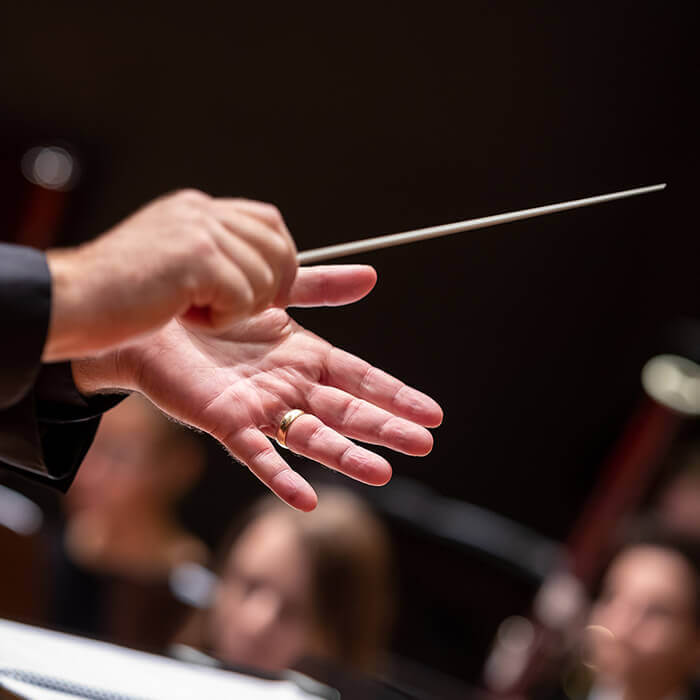
Graduate Credit
Graduate and Continuing Education Credits are available. Individuals registered for the Instrumental Conducting Symposium may elect to earn up to three graduate credits through Shenandoah University. This credit may be used for certificate/licensure renewal or applied to degree programs. Shenandoah University is accredited by the Southern Association of Colleges and Schools.
Course Title: Trends and Practices in Winds and Percussion Education
Course Number: MUCC 597 SCS (1 graduate credit)
Course Title: Readings: Winds and Percussion Education
Course Number: MUCC 598 SCS (1 graduate credit)
Course Title: Best Practices Conducting Application
Course Number: MUCC 599 SCS (1 graduate credit)

Repertoire
Repertoire information coming soon . . .
2026 Schedule
Sunday, June 28
| Time | Event | Location |
|---|---|---|
| 2 p.m. | Registration/Check-in | |
| 3 p.m. | Introductions | |
| 3:45 p.m. | Opening Session with Trish Cornett | Armstrong Hall, Room 39 |
| 4:30 p.m. to 7:30 p.m. | Conducting Session | Armstrong Concert Hall |
Monday, June 29
| Time | Event | Location |
|---|---|---|
| 9 a.m. | Morning Intro & Technique Session | Armstrong Hall, Room 39 |
| 9:30 a.m. | Small Group Sessions | Armstrong Concert Hall; Armstrong Hall, Room 39 |
| 11:30 a.m. | Lunch (on your own) | |
| 1 p.m. | Conducting Session (Full Band) | Armstrong Concert Hall |
| 4 p.m. | Clinic Session with Tim Robblee | Armstrong Concert Hall |
| Wrap-up Discussion | Armstrong Hall, Room 39 | |
| 5:30 p.m. | Dinner (on your own) |
Tuesday, June 30
| Time | Event | Location |
|---|---|---|
| 9 a.m. | Morning Intro & Technique Session | Armstrong Hall, Room 39 |
| 9:30 a.m. | Small Group Sessions | Armstrong Concert Hall; Armstrong Hall, Room 39 |
| 11:30 a.m. | Lunch (on your own) | |
| 1 p.m. | Conducting Session (Full Band) | Armstrong Concert Hall |
| 4 p.m. | Q&A Session | Armstrong Hall, Room 39 |
| 5 p.m. | Break & Carpool to Dinner (Provided) | Robblee Home (Outside of Leesburg, VA) |
Wednesday, July 1
| Time | Event | Location |
|---|---|---|
| 9 a.m. | Conducting Session (Full Band) | Armstrong Concert Hall |
| 10:30 a.m. | Break with Coffee & Snacks Provided | |
| 11:30 a.m. | Session Resumes | Armstrong Concert Hall |
| 10:45 a.m. | Conducting Session (Full Band) | Armstrong Concert Hall |
| 12 p.m. | Wrap-up Session | Health & Life Sciences Building, Rotunda |
| 1 p.m. | Farewells & Departures |
Schedule subject to change.
Frequently Asked Questions
The symposium will start on Sunday afternoon at 3 p.m. We’ll have a group session to cover some tips and techniques, go over details for the week, introduce ourselves and get ready for individual conducting. We will make a list of the pieces you intend to first conduct with the full ensemble before you arrive, please give that some thought prior to arriving. Parking is simple on campus—look for the Armstrong parking lot next door to the Brandt Student Center. Our activities will take place predominantly in Armstrong Hall.
We are currently unable to offer on-campus housing at this time. However, Shenandoah University has a partnership with a number of area hotels to provide special university rates. We recommend The George Washington Hotel, which is a beautifully restored 1910 luxury hotel close to the Old Town Winchester Walking Mall and is the place that Shenandoah usually houses guests—composers, conductors, etc. There are also two hotels within walking distance to campus: Hampton Inn and Aloft Winchester. Please reference your work at Shenandoah when making your reservation – that is all that these hotels need to give you the “Shenandoah rate.” Click here for more information on these hotels and more.
Social time is a major part of a conducting symposium week. I believe I’ve gained as much from other participants at symposia as I have from clinicians. Being available for dinners with your fellow conductors (or drinks afterwards) is a great way to get the most out of your week. Even for those who live within commuting distance, I’d encourage you to think about a night or two in which you might share a hotel room with someone and stay out in Winchester. Learn more about Winchester here.
I don’t know, but I suspect they might! If you’d like to put yourself out there as interested in sharing a room, just email me directly at trobblee@su.edu with the subject line “Room Sharing” and I’ll have one of my staffers put a list together that can be shared between interested participants.
The ensemble will consist of all of the participating conductors and observers, augmented by a number of Shenandoah Conservatory students. I’ve found that being part of the ensemble conducted—besides merely conducting it—really makes us all attuned to the impact of our conducting and makes for the best learning. Although you’ll be playing, it is always nice to have a pad of paper and pen nearby to write down comments from the clinicians; watching others can be the most helpful learning experience.
Most of you will play on your primary instrument (so maybe get back in shape now!); my staff and I will contact directly anyone that we need to play on their second instrument. For those that don’t own their instrument (like basses or timpani) we’ll see what we can do to help you.
You will conduct on each of the full symposium days. The repertoire you choose is ultimately up to you—you may want three pieces to vary your experience, or you may choose to repeat a piece to see how things are developing. I would encourage you to think about some variety of tempos, volumes, etc. The old audition-grouping of a technical and a lyric piece works here too. I chose the repertoire to reflect multiple levels of literature—choose what serves YOU best.
You will not be asked to rehearse the group, exactly. The focus of your podium time is on physical technique, interpretation, and personal engagement. Clinicians will decide how to best get at those goals. However, you will probably be asked what you heard or what you were listening for. There are 24 or so participants in the symposium. All participants conduct each day. Times on the podium will range from 8 to 12 minutes. Due to these time limits, plan on conducting one piece or one movement from one piece per day. Be prepared to conduct the whole movement or work; though you will likely be stopped, the clinician might ask you to jump to a different section of the work. As the week progresses, participants often find it helpful and refreshing to choose an alternate starting point to a movement (development, 3rd or 4th strophe of a folk song, etc.) so as to break the monotony or to address a different aspect of the piece. Participants might also choose to conduct the same piece or movement a second time during the week in order to focus on a certain issue.
You’ll conduct the full ensemble three times and also conduct a small break-out group of the participants during our “small group sessions.” These will be directed toward a specific area of technique and will involve us all conducting very short excerpts that you’ll receive on Sunday night (no need for extra preparation—use your time on your full band works).
Scores from JW Pepper can be purchased through the 2025 Shenandoah University Conducting Symposium collection (use promo code FSCSUCONDUCT2025 to receive free shipping). Scores from Gateway Sheet Music can be purchased by selecting the Shenandoah Instrumental Conducting Symposium option on the Conducting Symposiums web page.
In general, most retailers should have scores available for purchase. Scores from Gateway Sheet Music can be purchased by looking for “Shenandoah” under “Education and Events.” Scores from JW Pepper can be purchased by searching for conducting courses and symposiums. Some scores (e.g., from more active living composers) may be better sought out from their own websites. Jeff Girard at Midwest Sheet Music has them all stocked and can be found at midwestsheetmusic.com/conducting-symposiums/band/VA/.
Bringing all the scores is certainly recommended, but not required. Jeff Girard at Midwest Sheet Music has them set aside and easy to order through his online store.
Yes, it is available. Students wanting to receive graduate credit may enroll via Hornet Central. The rate will be $250.00 per credit for SCS sections (Summer 2022). More information coming soon.
It’s really up to you — some prefer more professional, some more casual. It is slightly helpful to wear a solid colored top — so that your baton stands out in your videos. One note: like other large campuses, heat and air conditioning at Shenandoah can sometimes fluctuate. Dressing in layers on the stage may protect you if the AC gets excited and tries to freeze us out on the stage!
It will be a mix. The clinicians will present some topics, we’ll have some directed discussions, we’ll have some open reflection time, and we’ll do some Q&A. We’ll have question sheets for you to write down questions you’d like addressed during these sessions.
We will help the group put a dinner plan together each night. We tend to frequent restaurants in the Winchester walking mall; it’s a great place for a night out. I hope you’ll plan to join your colleagues for meals, even if you’re commuting. On Tuesday night, we’ll have a group dinner (BBQ) at our old stone house in Paeonian Springs (between Leesburg and Waterford). It’s a bit of a drive (about 45 minutes) so we’ll try to put some carpools together. It’s a great chance to have dinner with the clinicians and the SU players and to enjoy some time together. Do bring a swimsuit—the pool will be ready! For history buffs, our home was built in 1725 by Quakers who moved down from Pennsylvania (but don’t worry, it has indoor plumbing).
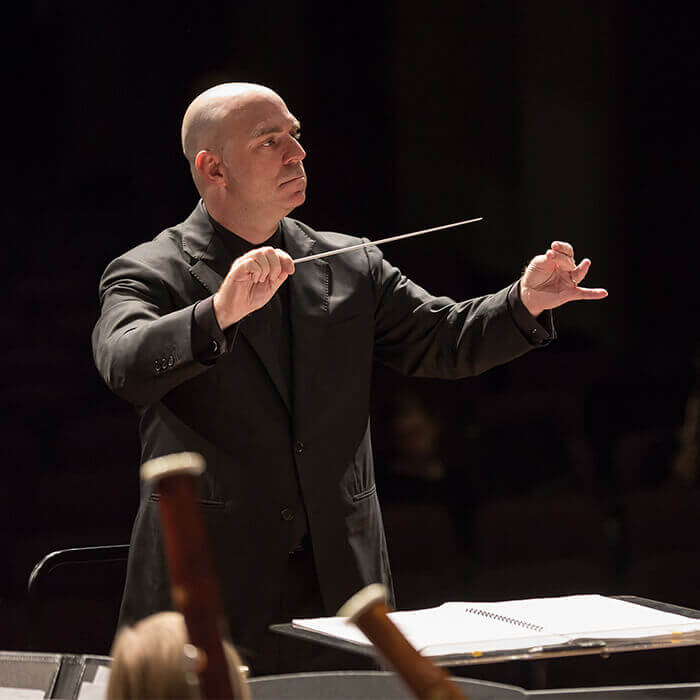
Contact Us
Tim Robblee
Director of Bands
Associate Professor of Conducting
Shenandoah Conservatory
trobblee@su.edu
(540) 545-7227